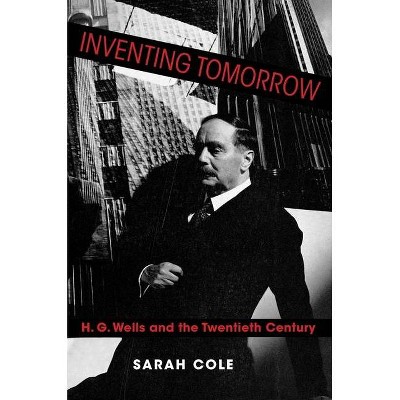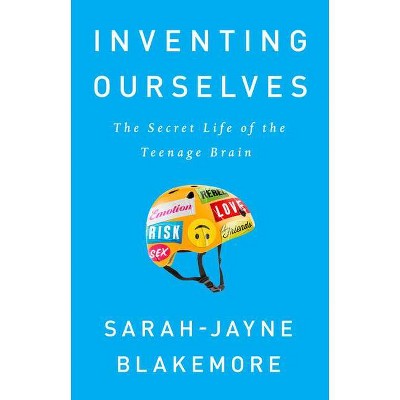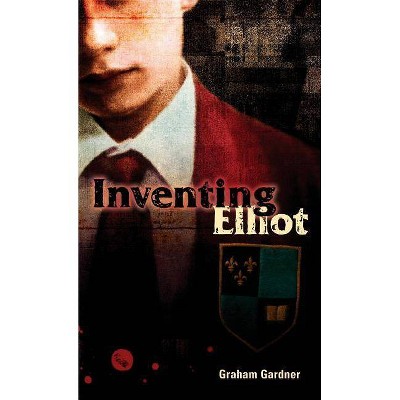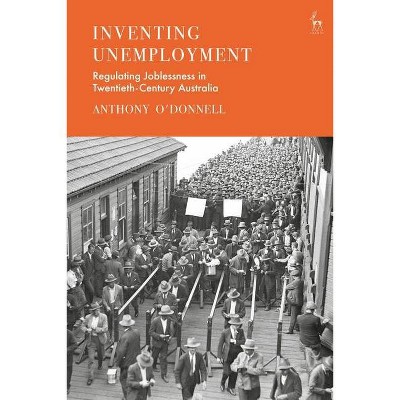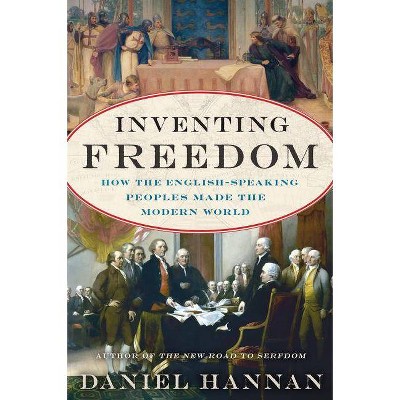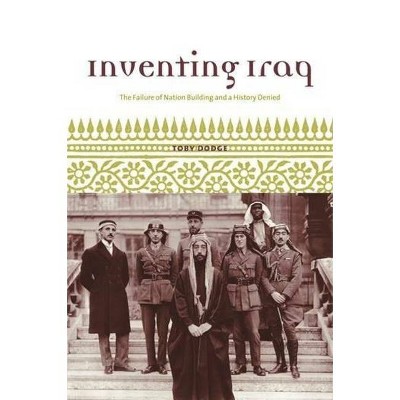Inventing Tomorrow - by Sarah Cole (Paperback)
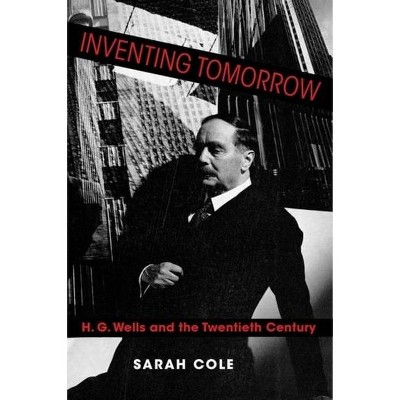
Similar Products
Products of same category from the store
AllProduct info
<p/><br></br><p><b> About the Book </b></p></br></br><i>Inventing Tomorrow</i> provides a definitive account of H. G. Wells's work and ideas. Sarah Cole illuminates his distinctive style as well as his interventions into social and political thought, arguing that he embodies twentieth-century literature at its most expansive and engaged.<p/><br></br><p><b> Book Synopsis </b></p></br></br>H. G. Wells played a central role in defining the intellectual, political, and literary character of the twentieth century. A prolific literary innovator, he coined such concepts as "time machine," "war of the worlds," and "atomic bomb," exerting vast influence on popular ideas of time and futurity, progress and decline, and humanity's place in the universe. Wells was a public intellectual with a worldwide readership. He met with world leaders, including Roosevelt, Lenin, Stalin, and Churchill, and his books were international best-sellers. Yet critics and scholars have largely forgotten his accomplishments or relegated them to genre fiction, overlooking their breadth and diversity. <p/>In <i>Inventing Tomorrow</i>, Sarah Cole provides a definitive account of Wells's work and ideas. She contends that Wells casts new light on modernism and its values: on topics from warfare to science to time, his work resonates both thematically and aesthetically with some of the most ambitious modernists. At the same time, unlike many modernists, Wells believed that literature had a pressing place in public life, and his works reached a wide range of readers. While recognizing Wells's limitations, Cole offers a new account of his distinctive style as well as his interventions into social and political thought. She illuminates how Wells embodies twentieth-century literature at its most expansive and engaged. An ambitious rethinking of Wells as both writer and thinker, <i>Inventing Tomorrow</i> suggests that he offers a timely model for literature's moral responsibility to imagine a better global future.<p/><br></br><p><b> Review Quotes </b></p></br></br><br>[A] substantial, well-written study.--Choice<br><br>[Cole's] ingenious recasting of Wells as a dissident modernist seems likely to prove influential.--Times Literary Supplement<br><br>[H.G. Wells] emerges from this wide-ranging account as a passionate and persistent advocate of social change, and of literature's capacity to shape it.--The Economist<br><br>A magisterial book...beautifully written and persuasive throughout.--Marx and Philosophy Review of Books<br><br>A sympathetic and informative exploration of Wells as a writer and thinker.--Spiked<br><br>An important new evaluation of H.G. Wells.--Maya Jasanoff "Wall Street Journal "<br><br>Cole adroitly captures Wells, from his mould-breaking books (such as the 1895 science-fiction classic <i>The Time Machine</i> and 1920 <i>Outline of History</i>) to his unlikely intellectual kinship with subtle modernists such as Virginia Woolf.--Nature<br><br>Cole documents a thorough and thoughtful appreciation of Well's accomplishments and skills as a writer to argue for a revised estimate of his body of work.--Library Journal<br><br>Cole's dense, erudite and wide-ranging account demonstrates the grand sweep of his interests and ambitions.--Times Higher Education<br><br>From the prehistoric to the posthuman, from the microcosmic to the cosmic, Wells wrote about everything under the twentieth-century sun. To see why he was the indispensable writer of the last century, we need a guide as skilled and authoritative as Sarah Cole, who gives to readers an eloquent vindication of modernism's forgotten man.--Jed Esty, author of <i>Unseasonable Youth: Modernism, Colonialism, and the Fiction of Development</i><br><br>Full of illuminating argument, fresh perception, and lively polemic, <i> Inventing Tomorrow</i><i> </i>makes an overwhelming case for the twenty-first century rediscovery of H. G. Wells.--Patrick Parrinder, University of Reading<br><br>In a landmark new study of Wells, Sarah Cole...reveals a writer whose twin obsessions with biology and history saturated his sense of humankind and its future prospects. <i>Inventing Tomorrow</i> restores Wells to his erstwhile centrality in the intellectual culture of the early twentieth century and unspools a "mix of attractive and repellent" ideas that resonate in an ambitious, anxious twenty-first.--New York Review of Books<br><br>Inclusive, capacious, infectiously energetic work...<i>Inventing Tomorrow</i> is an invitation well worth taking up.--Politics / Letters<br><br>Sarah Cole restores a colossus to size, recovering the enormous importance of H. G. Wells in the literary and cultural history of a century that seems, until now, to have left him behind. No longer. Written with synoptic power and narrative flair, synthesizing an extensive archive of print and film, <i>Inventing Tomorrow</i> splendidly establishes Wells not just as a figure of primary importance, but as an attractive, indeed fascinating, imaginative personality.--Vincent Sherry, Howard Nemerov Professor in the Humanities, Washington University in St. Louis<br><br>Sarah Cole transforms our view of H. G. Wells, not only seeing him as a pivotal figure in his own world but also, with subtlety and conviction, connecting him with his modernist contemporaries. Wells emerges in this detailed, cogent, and incisive study as a complex and fascinating thinker filled with contradictions, combining moral force with artistic restlessness. He was headstrong, engaged, combative, innovative, industrious, fearless, and prophetic. <i>Inventing Tomorrow </i>does justice to his vast range of work while emphasizing how Wells must be placed at the core of any consideration of intellectual life in the early twentieth century.--Colm Tóibín, author of <i>Brooklyn: A Novel</i><br><br>Sarah Cole's fascinating literary investigation <i>Inventing Tomorrow</i> shows how H. G. Wells's work is relevant and meaningful today. . . . The book's scholarship combines literary criticism with biographical elements, explaining how Wells mixed details of his own life and his modernist philosophy into his work.--Foreword Reviews (starred review)<br><br>What if modernism met up with antimodernism, like matter and antimatter? In Sarah Cole's fascinating and ambitious new study, she argues that H. G. Wells's work was at once modernist and itself a critique of modernism, an explosive mix whose significance was missed both by his contemporaries and by literary critics who have taken his rivals at their word and mistaken their jealousy at his popularity for judgment of his merit.--Jill Lepore, author of <i>These Truths: A History of the United States</i><br><br>While never ignoring untenable views about race and eugenics, [Cole] sees the point of him, saluting his humor and his relation to the world that formed him. Any subsequent work on Wells will have to take her as its starting point.--D. J. Taylor "Wall Street Journal "<br><p/><br></br><p><b> About the Author </b></p></br></br>Sarah Cole is Parr Professor of English and Comparative Literature and dean of humanities at Columbia University. She is the author of <i>Modernism, Male Friendship, and the First World War</i> (2003) and <i>At the Violet Hour: Modernism and Violence in England and Ireland</i> (2012).
Price History
Cheapest price in the interval: 28 on October 27, 2021
Most expensive price in the interval: 28 on November 8, 2021
Price Archive shows prices from various stores, lets you see history and find the cheapest. There is no actual sale on the website. For all support, inquiry and suggestion messagescommunication@pricearchive.us
